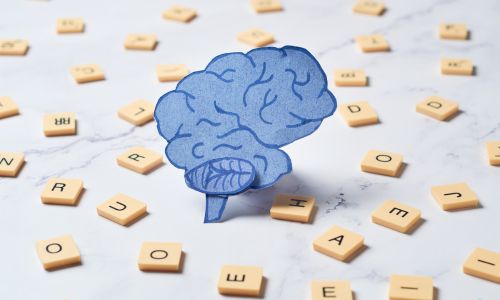What are Learning Disabilities?
Learning disabilities are neurologically-based disorders that affect the brain’s ability to receive, process, store, respond to, and communicate information.
Types:
- Dyslexia: Primarily affects reading and related language-based processing skills
- Dyscalculia: Causes difficulties in understanding numbers and learning math facts.
- Dysgraphia: Impacts a person’s handwriting ability and fine motor skills
- Non-Verbal Learning Disabilities: Challenges in visual-spatial skills, social skills, and understanding non-verbal cues
- Auditory Processing Disorder (APD): Affects the ability to recognize subtle differences between sounds in words
- Visual Processing Disorder: Impacts the brain’s ability to interpret visual information
- Language Processing Disorder: Affects the ability to attach meaning to sound groups forming words, sentences, and stories
- Specific Learning Disorder with impairment in Written Expression: Problems with spelling, grammar and punctuation accuracy, and clarity or organization of written expression
Individual Differences: Learning disabilities can vary greatly in severity and the areas of learning they affect. They are unique to the individual and can manifest in one learning domain or multiple.
Not Indicative of Intelligence: Learning disabilities do not reflect a person’s intelligence. Many people with learning disabilities have average or above-average intelligence.
Impact: Learning disabilities can affect many areas of life, including academics, social interactions, daily activities, and eventually, career prospects.
Lifelong: These are usually lifelong conditions that individuals learn to adapt to and manage with the right support and interventions.
Why are metacognition and problem solving skills important for individuals with learning disabilities?
- Understanding Strengths and Weaknesses: Metacognition, or “thinking about thinking,” allows individuals with learning disabilities to understand their cognitive strengths and weaknesses. This awareness is crucial in developing strategies that best suit their unique cognitive profiles.
- Strategy Development: Problem-solving skills empower individuals to develop and adapt strategies that work best for them, helping to overcome or manage specific challenges associated with their learning disability.
- Compensation: With enhanced metacognition, individuals can leverage their strengths to compensate for areas of difficulty. For example, someone with dyslexia, who may have a strong visual memory, can use visualization techniques to remember and understand information.
- Independence: By fostering problem-solving skills, individuals become more capable of independent learning and working. They can devise and modify strategies without relying heavily on others, fostering self-reliance and confidence.
- Resilience: The combination of metacognition and problem-solving skills aids in building resilience. Understanding their unique brain’s workings helps individuals navigate obstacles more effectively, promoting resilience in the face of challenges.
- Life Skills: These skills are not limited to academic contexts. They are vital life skills that can help individuals with learning disabilities navigate social interactions, manage time, organize tasks, and succeed in the workplace.
- Success: Ultimately, fostering metacognition and problem-solving skills can improve the overall success of individuals with learning disabilities, not just in academics, but across various facets of life. By empowering them to understand and work with their unique cognitive strengths, these skills lay the foundation for lifelong learning and growth.




